
Home Cure for Leg Cramps
Leg cramps are sudden, involuntary contractions of the muscles in the leg. They often occur at night and can last from a few seconds to several minutes, causing significant discomfort. Leg cramps can result from various factors, including dehydration, muscle fatigue, or electrolyte imbalances. They are commonly experienced by athletes, pregnant women, and older adults.
While leg cramps are typically harmless, they can disrupt sleep and daily activities. Home remedies offer simple and effective solutions to alleviate and prevent leg cramps without the need for medication.
Causes of Leg Cramps
Leg cramps can be caused by a variety of factors, including:
- Dehydration: Insufficient fluid intake can lead to electrolyte imbalances, which can trigger muscle cramps.
- Electrolyte imbalance: A lack of essential minerals like potassium, magnesium, or calcium can contribute to muscle spasms. 1. naomedical.comnaomedical.com
- Overuse: Excessive physical activity or strenuous exercise can put stress on your muscles, making them more susceptible to cramps.
- Medical conditions: Certain underlying health conditions, such as diabetes, nerve disorders, or poor circulation, can increase the risk of leg cramps.

Home Cure Tips for Leg Cramps
- Stretching:
- Massage:
- Hydration:
- Potassium, Magnesium and Calcium rich foods:
- Essential Vitamins:
- Heat Therapy:
- Cold Therapy:
- Proper Footwear:
- Adequate sleep:
- Epsom Salt Bath:
- Apple Cider Vinegar:
- Quinine Water:
- Lifestyle Changes
- When to See a Doctor

Stretching
Simple Stretches to Prevent Leg Cramps
Regular stretching of the leg muscles, particularly the calves and hamstrings, can prevent cramps by improving flexibility and circulation.
Timing Your Stretches
Stretching before bed or after exercise can reduce the likelihood of experiencing leg cramps during the night.
Stretching Techniques Before Bed
Gentle stretches, such as toe touches or calf stretches, performed before bedtime can help relax muscles and reduce cramping.
Massage
Benefits of Massaging Cramped Muscles
Massaging the affected muscle can improve blood flow, relieve tension, and reduce the duration of a cramp.
Effective Massage Techniques
Using firm, circular motions on the cramped muscle can help ease the pain and relax the muscle.
Using Essential Oils
Essential oils like lavender or peppermint can be added to massage oils for added relaxation and relief from cramps.
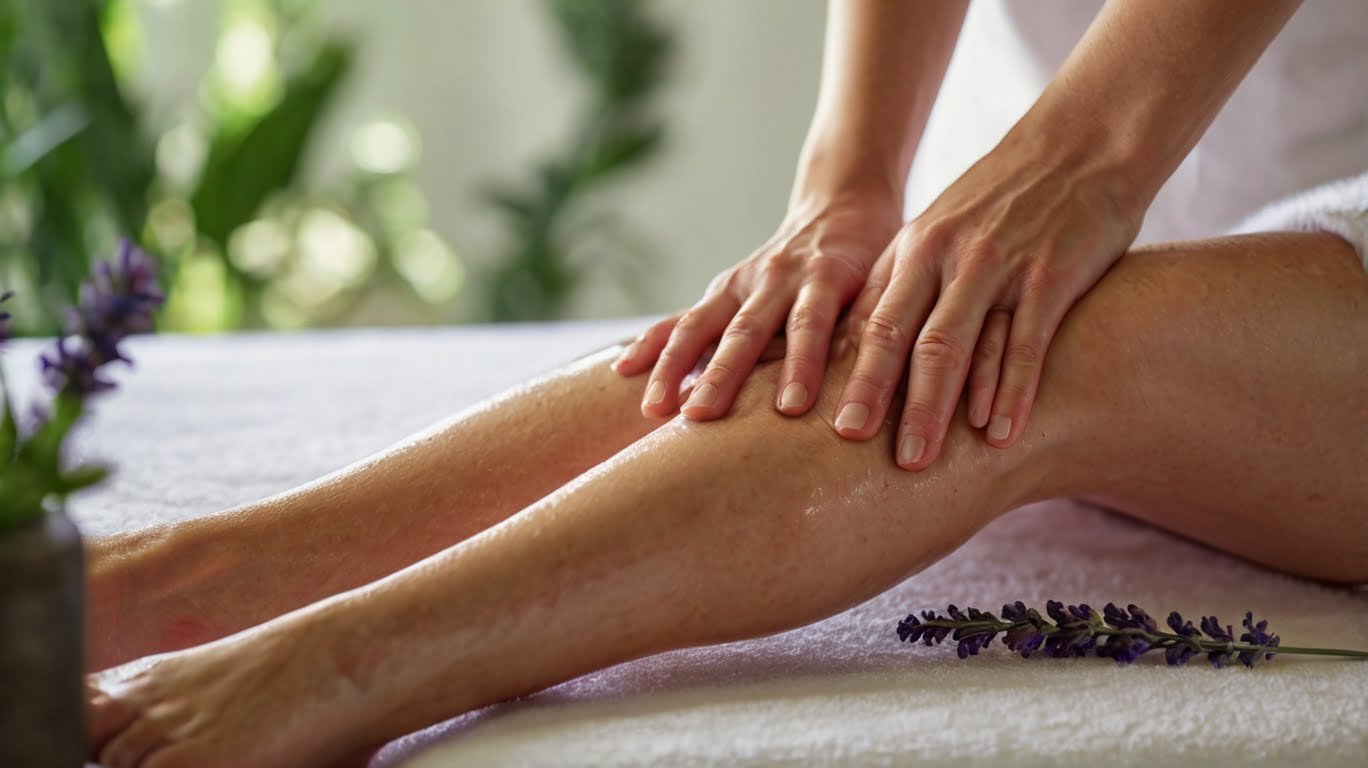
Hydration
Importance of Staying Hydrated
Proper hydration is crucial for muscle function. When the body lacks sufficient fluids, it can lead to muscle cramping.
How Dehydration Causes Leg Cramps
Dehydration leads to an imbalance of electrolytes like sodium and potassium, which are essential for muscle contractions. Without adequate hydration, these imbalances can trigger cramps.
Best Fluids to Consume
Water is the best option for staying hydrated. Electrolyte-rich drinks, such as sports drinks or coconut water, can also help replenish lost minerals.
Essential Minerals
Potassium-Rich Foods
Importance of Potassium in Muscle Function
Potassium is essential for muscle contractions. A deficiency can lead to cramping and other muscle-related issues.
Best Foods for Potassium
Bananas, sweet potatoes, and oranges are excellent sources of potassium and can help prevent cramps.
Balancing Potassium Intake
It’s important to maintain a balanced potassium intake. Overconsumption can lead to hyperkalemia, a condition that can cause serious health issues.
Magnesium Intake
Role of Magnesium in Muscle Health
Magnesium plays a key role in muscle relaxation and preventing cramps. A deficiency in magnesium can lead to increased muscle tension and cramping.
Magnesium-Rich Foods
Foods such as spinach, almonds, and avocados are excellent sources of magnesium and can help maintain healthy muscle function.
Supplements and Dosages
For those who struggle to get enough magnesium through diet alone, supplements may be beneficial. A typical dosage ranges from 200 to 400 mg per day, but it’s important to consult a healthcare provider before starting any supplement.
Also include dairy products, fortified cereals, and leafy greens to ensure adequate calcium intake.
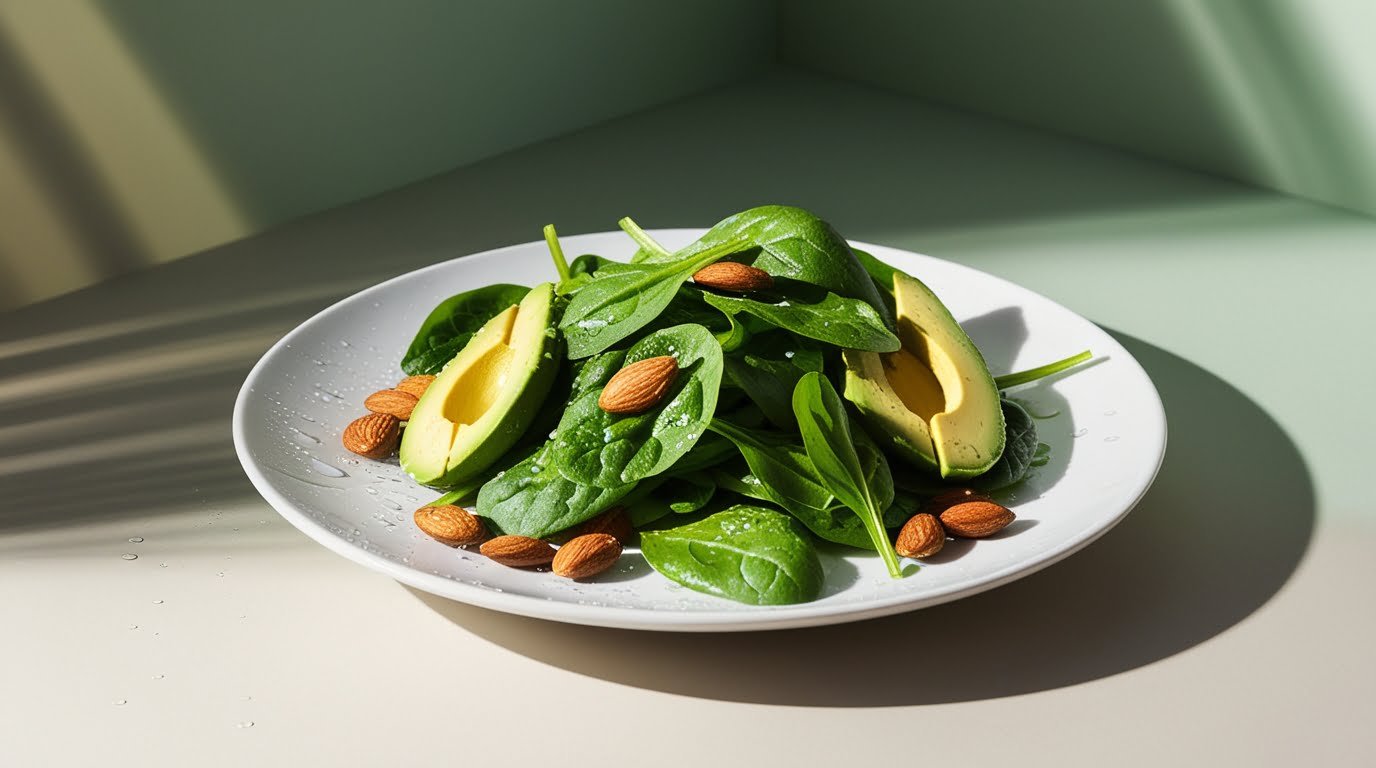
Essential Vitamins
Essential Vitamins for Muscle Health
Vitamins D and B12 are crucial for maintaining muscle function and preventing cramps.
Best Supplements to Consider
In addition to magnesium and potassium, consider supplements for vitamins D and B12, especially if you have a deficiency.
Dietary Sources
Foods like dairy products, eggs, and leafy greens are good sources of these essential vitamins and can help maintain muscle health.
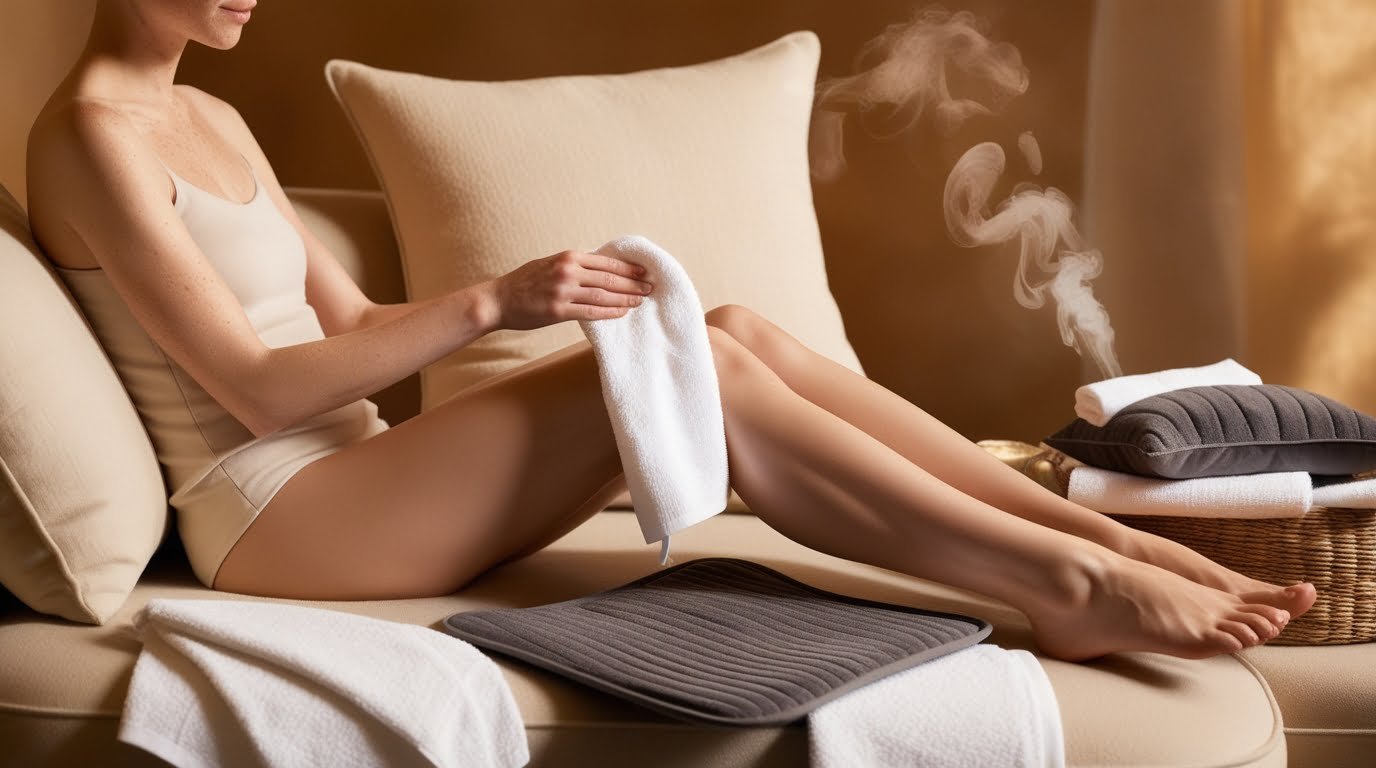
Heat Therapy
Benefits of Heat on Muscles
Applying heat to cramped muscles can increase blood flow and relax tight muscles, providing quick relief.
How to Apply Heat
A warm towel, heating pad, or warm bath can be used to apply heat to the affected area. Ensure the heat is not too intense to avoid burns.
Best Tools for Heat Therapy
Heating pads, warm compresses, or a hot water bottle are effective tools for applying heat therapy to relieve leg cramps.
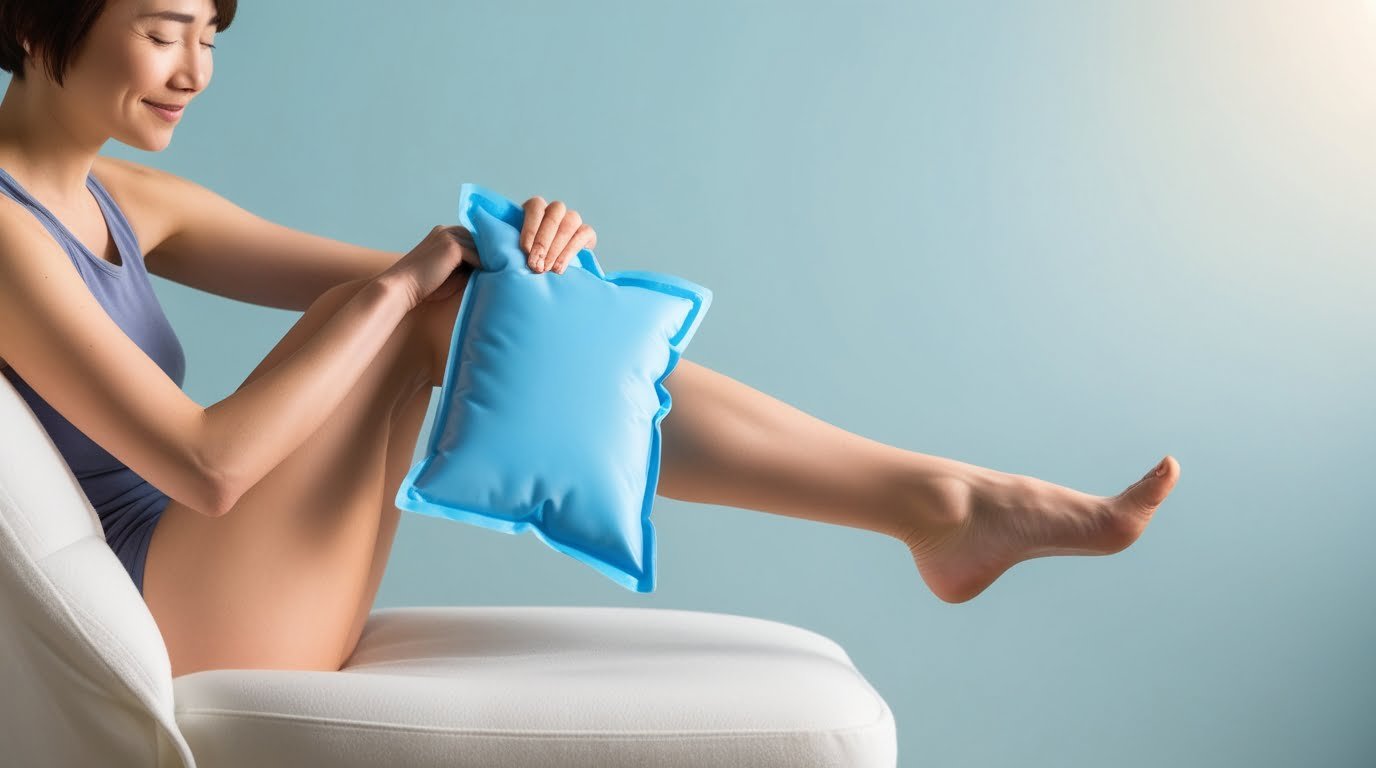
Cold Therapy
How Cold Therapy Helps
Cold therapy can reduce inflammation and numb pain, making it useful for cramps that result from overuse or injury.
When to Use Cold Therapy
Cold therapy is most effective immediately after a cramp occurs, particularly if there is swelling or soreness in the muscle.
Types of Cold Compresses
Ice packs, cold gel packs, or a simple bag of frozen peas can be used as cold compresses to alleviate leg cramps.
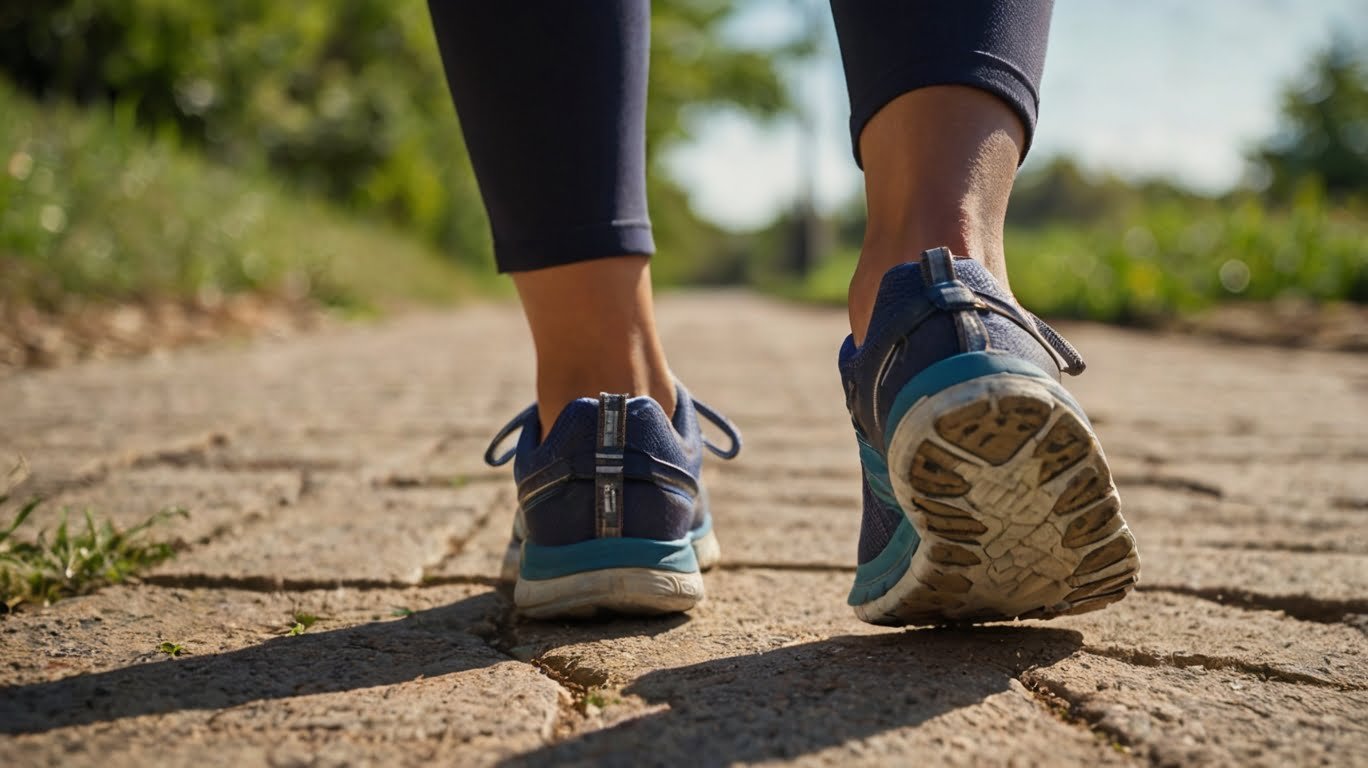
Proper Footwear
How Footwear Affects Leg Health
Wearing improper footwear can lead to poor posture and muscle strain, increasing the risk of leg cramps.
Choosing Supportive Shoes
Shoes with proper arch support and cushioning can help maintain good posture and reduce muscle fatigue.
Insoles and Orthotics
Custom insoles or orthotics can provide additional support and alleviate the stress on muscles, reducing the occurrence of leg cramps.
Apple Cider Vinegar
How Apple Cider Vinegar Helps
Apple cider vinegar is believed to help balance the body’s pH and provide essential minerals, potentially reducing the frequency of leg cramps.
Methods of Consumption
Mix 1-2 tablespoons of apple cider vinegar with water and drink it daily to help prevent cramps.
Precautions and Considerations
Apple cider vinegar is acidic, so it’s important to dilute it to avoid damaging tooth enamel. Consult a healthcare provider before use, especially if you have underlying health conditions.
Quinine Water
What Is Quinine?
Quinine is a compound derived from the bark of the cinchona tree and has been used historically to treat malaria and muscle cramps.
Effectiveness of Quinine Water
Quinine water can be effective in relieving muscle cramps, but it should be used with caution due to potential side effects.
Risks and Side Effects
Long-term use of quinine can lead to serious side effects, including arrhythmias and allergic reactions. It’s essential to consult a healthcare provider before using quinine water regularly.

Epsom Salt Bath
How Epsom Salt Relieves Muscle Cramps
Epsom salt is rich in magnesium, which can be absorbed through the skin during a bath, helping to relax muscles and reduce cramping.
Preparing an Epsom Salt Bath
Dissolve 1-2 cups of Epsom salt in a warm bath and soak for 15-20 minutes to relieve muscle cramps.
Frequency of Use
An Epsom salt bath can be taken a few times a week to maintain muscle health and prevent cramps.
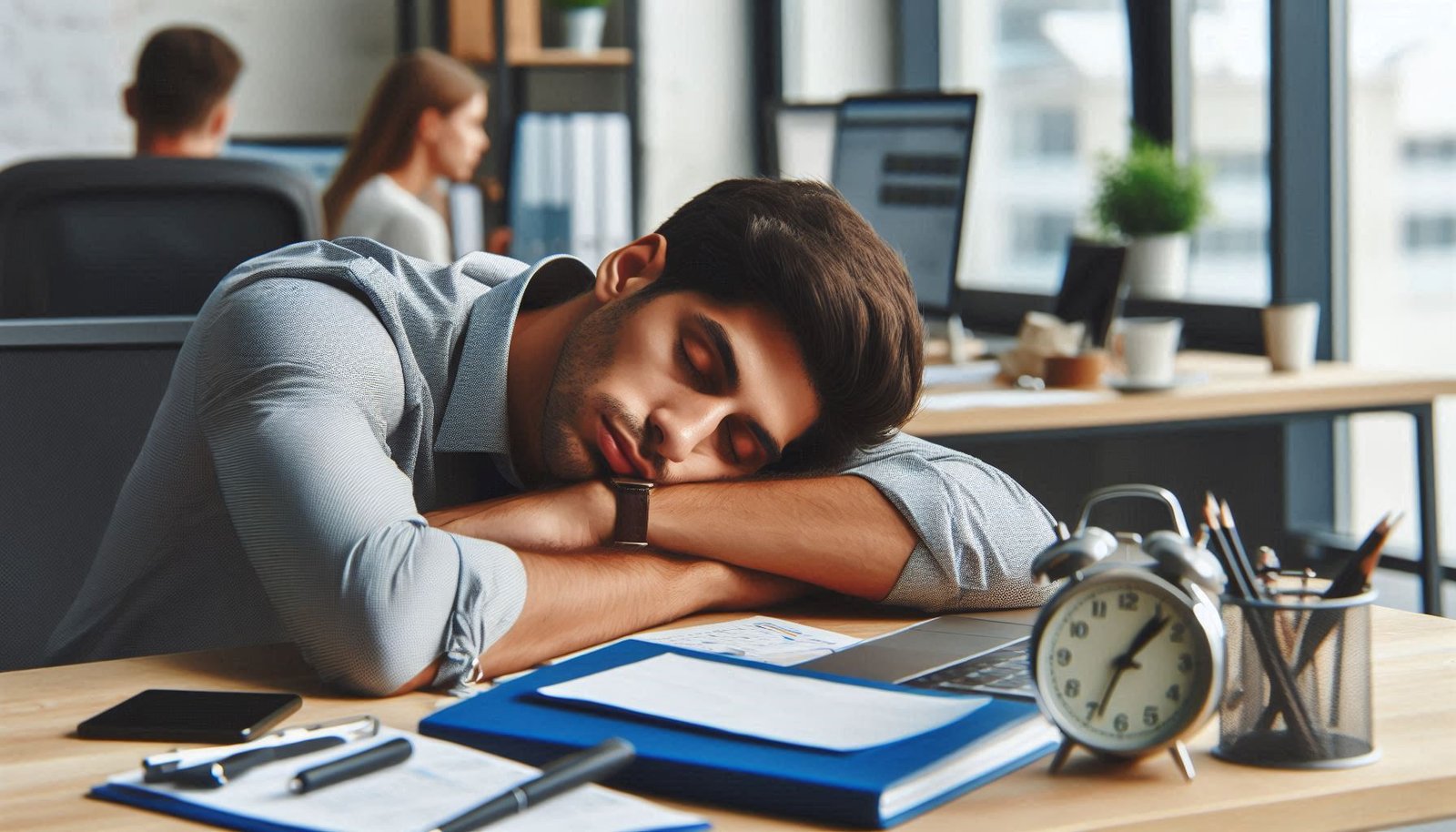
Lifestyle Changes
Importance of Regular Exercise
Regular physical activity helps maintain muscle tone and flexibility, reducing the likelihood of cramps.
Reducing Stress to Prevent Cramps
Stress can lead to muscle tension and cramping. Incorporating relaxation techniques such as meditation can help.
Sleep and Muscle Health
Adequate sleep is vital for muscle recovery and preventing cramps. Establishing a regular sleep schedule can improve muscle health.
When to See a Doctor
Identifying Serious Symptoms
If leg cramps are frequent, severe, or accompanied by swelling or redness, it may indicate a more serious condition.
How Frequent Cramps Can Indicate Health Issues
Chronic cramps could be a sign of underlying health issues such as nerve damage or circulation problems.
Consulting a Healthcare Professional
If you experience persistent or worsening leg cramps, it’s important to seek medical advice to rule out serious conditions.

Conclusion
Leg cramps are common but can be effectively managed with this Home Cure for Leg Cramps tips. Staying hydrated, stretching regularly, and ensuring adequate intake of essential nutrients can help prevent cramps.
By implementing these simple Home Cure for Leg Cramps tips, you can reduce the frequency and severity of leg cramps, leading to better overall well-being.
Muscle cramps can be caused by dehydration, overuse of a muscle, poor circulation, or a lack of essential minerals like potassium, calcium, or magnesium.
You can prevent muscle cramps by staying hydrated, stretching regularly, eating a balanced diet rich in essential minerals, and wearing supportive footwear.
When you get a muscle cramp, try gently stretching and massaging the affected muscle, applying heat or cold, and drinking water.
While muscle cramps are usually harmless, frequent or severe cramps could indicate an underlying health issue, such as nerve damage or circulatory problems, and should be checked by a doctor.
Yes, foods rich in potassium, magnesium, and calcium, such as bananas, spinach, and dairy products, can help reduce the frequency of muscle cramps.